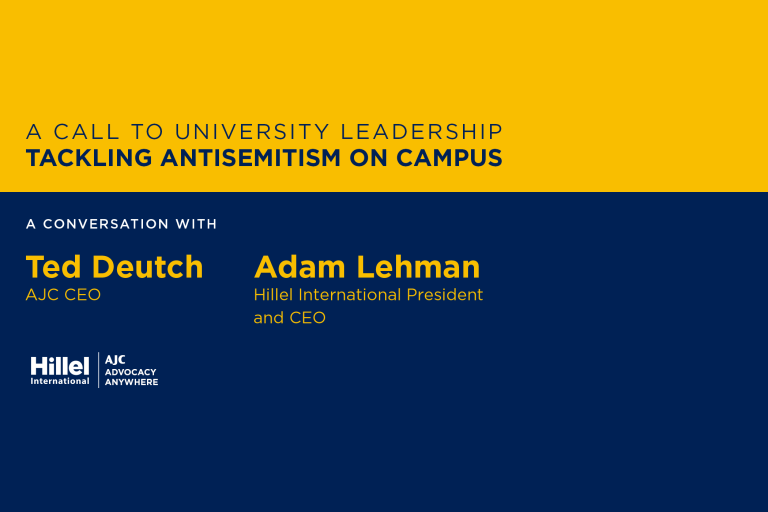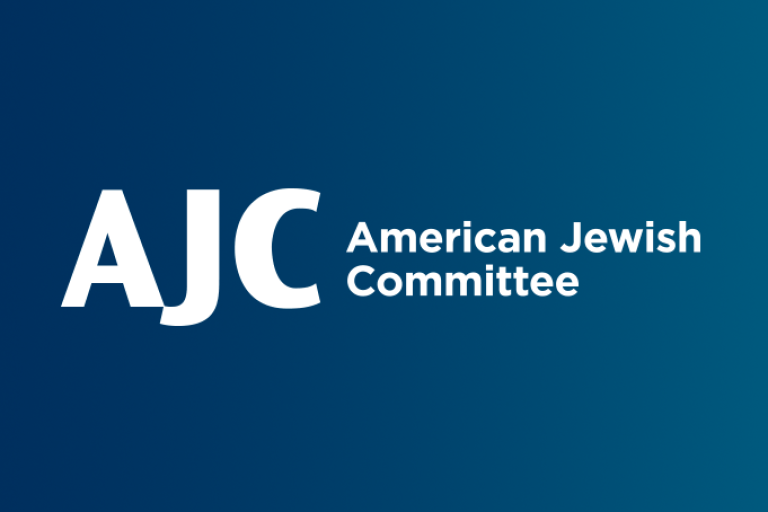February 18, 2015 — Washington, D.C.
Rabbi Andrew Baker, AJC Director of International Jewish Affairs, told the White House Summit on Countering Violent Extremism today that Jews in Europe are living in fear and criticized the hesitancy of many European leaders to identify publicly the roots of rising antisemitism and the perpetrators of the violence that has struck fatally Jews and the general population.
“European Jews feel doubly at risk,” said Rabbi Baker. “They know the dangers are real, but how can they have confidence that their governments also know this?”
AJC, the global Jewish advocacy organization, has been warning for more than 15 years about ominous elements in European countries that specifically target Jews, but ultimately threaten the democratic societies in which they live.
“Some have been reluctant to identify the victims or to identify the perpetrators or even to call it antisemitism,” said Rabbi Baker, referring in particular to the recent Islamist terror attacks in Copenhagen and Paris. “It should be obvious that this radical Islamist extremism is also deeply antisemitic.”
Elaborating on his concerns about European readiness to respond adequately to the threats, Baker recounted his conversations about security for Jewish institutions two years ago with Belgian officials in Brussels and last fall with Danish authorities in Copenhagen.
“Even today the Belgian Jewish community is awaiting an answer from the government to its request for additional security and funding,” said Baker, though he pointed out that Belgian officials acknowledged to him that the Jewish community needs security on the level of the U.S. and Israeli embassies.
Similarly, Danish government officials told Baker last fall that they had rebuffed Jewish community requests for a police presence in front of the synagogue and Jewish school because they were concerned that armed guards in front of these buildings might disturb the sense of ease that Danish citizens so value.
While security has been enhanced in France, Denmark and several other European countries, Baker reminded the audience that government, civil society leaders, and media need to be crystal clear about who is responsible for the acts of terrorism already taking place and ongoing looming threats.
“In many Western European countries today elements of the Muslim population are the primary source of antisemitic incidents and of physical and verbal harassment,” said Baker. “These threats have slowly and steadily eroded Jews’ sense of security and comfort in their day to day lives. They are why nearly 40 percent of Jews in the EU, when surveyed over two years ago, were already considering emigration.”
Baker offered a ray of hope for responding to the crisis of violent extremism in Europe. Last November an OSCE conference on antisemitism in Berlin drew nearly 500 participants from governments and civil society organizations. Baker, who also serves as the OSCE Chair’s personal representative on combatting antisemitism, said that the Leadership Conference on Civil Rights delegation was one of the most impressive.
“This broad coalition of organizations delivered the message that antisemitism, at least here in the U.S., is everybody’s problem,” said Baker. Duplicating this approach in Europe “will not be easy,” added Baker, “but the crisis we face in Europe demands an urgency to respond and search for new tools and methods” to effectively fight antisemitism.


